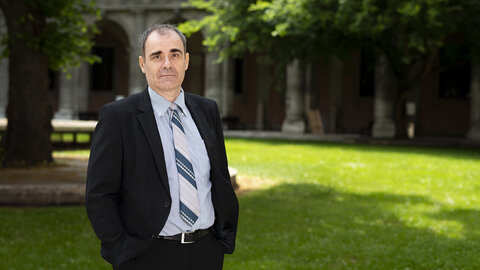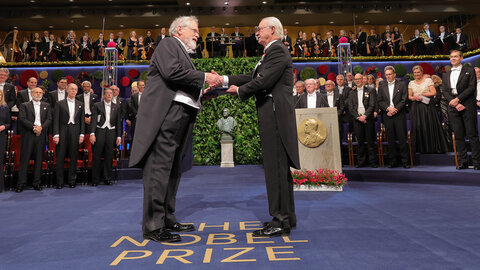A baptism in the now French city of Reims around the year 500 of the common era was to have a major impact on the entire European Middle Ages. In the course of the decline of Roman imperial structures, many cities had become local kingdoms, ruled by former Roman governors, mostly of Frankish origin. One of these governors, Clovis from the House of Merovingia, defeated many local kingdoms and united them into one Frankish kingdom. Clovis then converted to Christianity and was baptized in Reims. The King of the Franks hoped that this would bring him divine assistance on the battlefield and strengthen his worldly power. But the effect of this conversion went far beyond that: Clovis I created a model of medieval ruling systems in which a ruler, legitimized by God, ruled in the name of a people. This was the model that became established in Europe and ultimately led to the emergence of modern nations.
But what made up the ‘people’ under Clovis’ rule? Ethnically, it was by no means uniform. The Germanic Franks and other warlike immigrants were only a minority. The much larger proportion were Gallo-Romans, i.e., Gauls who had been influenced by the now vanished Western Roman Empire. Clovis’ Frankish empire was a mixture of Roman, Gallic, and Germanic cultural elements, held together by the definition of a folk with a new relationship to an omnipotent God.




![[Translate to English:] Jennifer Doudna und Emmanuelle Charpentier im Portrait](/fileadmin/_processed_/f/4/csm_Charpentier_Doudna_cAlexanderHeinl_picture_alliance_dpa_31bea8d369.jpg)

![[Translate to English:] Christa Schleper entnimmt eine Sedimentprobe aus der Donau](/fileadmin/_processed_/3/e/csm_Christa_Schleper_cUlrichZinell_ef90da6f10.jpg)
![[Translate to English:] Wolfgang Lutz blättert in einem großen Atlas](/fileadmin/_processed_/c/6/csm_Wolfgang_Lutz_cHerbertNeubauer_picturedesk_f0e494e876.jpg)


![[Translate to English:]](/fileadmin/_processed_/5/b/csm_Ferenc_Krausz__C__%C3%96AW_APA-FOTOSERVICE_MARTIN_H%C3%96RMANDINGER_2_ed50c7acf1.jpg)